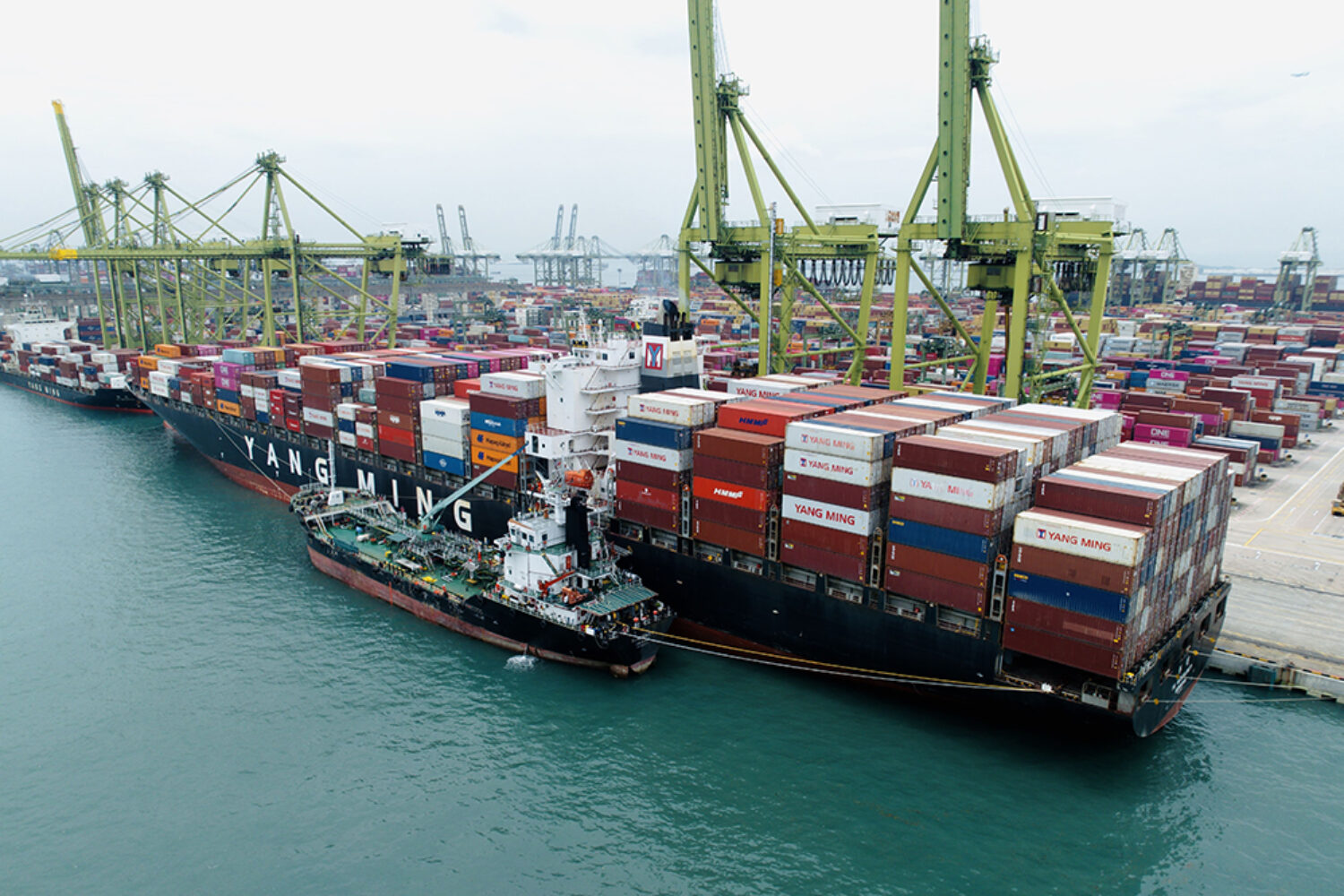The Taiwanese container liner shipping company Yang Ming is introducing the bunkering of biofuel in its fleet. The commitment is to be gradually expanded.
Yang Ming, number 9 in the global market, has introduced “sustainable, certified biofuel” to its fleet in Hong Kong and Singapore.
In this way, the shipping company aims to reduce emissions compared to the previous year and offer customers more environmentally friendly transportation services, according to a recent announcement.
The 1,805 TEU ship “YM Inception” and the 6,600 TEU ship “YM Masculinity” made the start. These freighters are currently in service to and from Taiwan, Hong Kong, Vietnam and Thailand (JTC) and to and from the Middle East (CGX) respectively. In cooperation with the energy suppliers Chimbusco Pan Nation Petro-Chemical and KPI OceanConnect, both ships were bunkered with B24 biofuel, which has been certified by the International Sustainability & Carbon Certification (ISCC).
Yang Ming relies on a bundle of measures
It consists of a mixture of fatty acid methyl ester (FAME) and very low sulphur fuel (VLSFO). By using the biofuel, Yang Ming claims to be able to reduce carbon emissions by around 20%.
Chairman Cheng Cheng-Mount said: “In view of future regulatory requirements and the challenges of decarbonization, the introduction of biofuel is an important milestone for Yang Ming on the road to net zero emissions.” Despite the higher costs involved, Yang Ming plans to gradually expand the use of biofuel from 2024 and continue research and investment in new alternative energy sources to achieve a 20% reduction in total carbon emissions by 2030 compared to 2018 levels.
In addition to the integration of biofuel, the shipping company, like many of its competitors, is focusing on a range of other measures, including retrofitting existing ships to improve energy efficiency, using big data analytics to optimise ship performance and implementing route optimisation strategies. In addition, the company expects to take delivery of five new 15,500 TEU LNG dual-fuel container ships from 2026.













